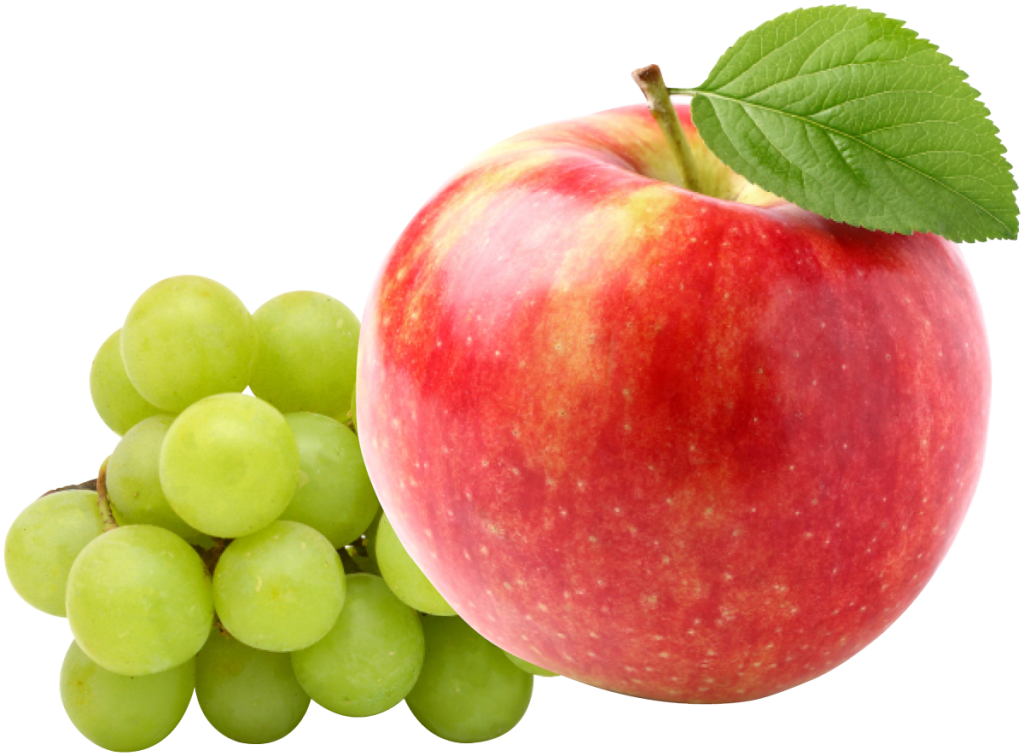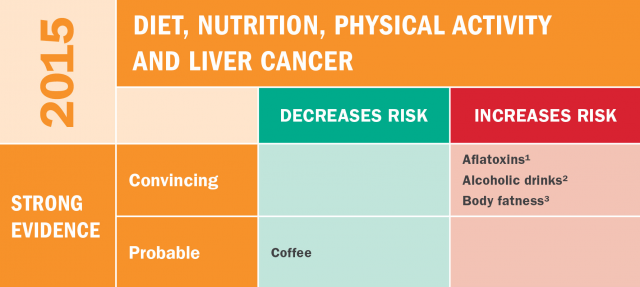Liver cancer is the sixth most common cancer worldwide and the risk increases with age, with most cases diagnosed over the age of 75.
Liver cancer is nearly 3 times more common in men than in women. The early stages of liver cancer do not usually produce symptoms, so the disease is generally advanced when it is diagnosed.
The liver is the body’s largest internal organ. It processes and stores nutrients and produces cholesterol and proteins such as albumin, clotting factors and the lipoproteins that carry cholesterol. It also secretes bile and performs many metabolic functions, including detoxification of several classes of carcinogens.
AICR’S latest report on liver cancer found that maintaining a healthy weight and drinking coffee can lower your risk. Alcohol, excess body fat and aflatoxins are factors that contribute to an increased risk for liver cancer.
Lifestyle and liver cancer risk.
- Alcohol
There is strong evidence that drinking alcohol increases risk for liver cancer.
- Excessive consumption of alcohol gives rise to cirrhosis, a condition in which scar tissue replaces healthy liver tissue. This interferes with liver functioning in ways that increase risk.
- This risk increase becomes pronounced at approximately three or more alcoholic drinks per day. Risk is increased further if a person also smokes.
- When it comes to alcohol, the best advice is to moderate your intake — two or fewer drinks a day for men and one or fewer for women — or avoid it completely.
- Overweight/Obesity
Carrying excess body fat increases liver cancer risk.
- Being overweight and obese increases blood levels of insulin and related hormones that can encourage the growth of cancer.
- Excess fat also creates a pro-inflammatory environment in the body that can contribute to the growth of cancer.
- Coffee
Drinking coffee lowers liver cancer risk.
- Drinking coffee has now been linked to decreased risk for liver cancer, though it’s not yet possible to pinpoint what amount or preparation method affords optimal protection.
- Coffee contains a variety of naturally occurring compounds that may exhibit anti-cancer activity in the body.
- Because coffee is consumed in a wide variety of ways (caffeinated, decaf; black, w/milk, sugar; drip, press; etc.) it is not yet possible to pinpoint a precise amount or preparation that affords optimal protection. In studies, people who drank one cup per day had a 14% lower risk of liver cancer than people who did not drink coffee at all.
- Other Factors
Diabetes, smoking, the hepatitis B and C viruses, and exposure to aflatoxins increase risk for liver cancer.
- Aflatoxins, produced by fungi that grow on improperly stored grains and nuts, raises liver cancer risk, but exposure is rare in the U.S.
- Aflatoxins cause a kind of liver damage that can spark the cancer process.
- People who smoke increase their risk of liver cancer.

Foods that fight liver cancer.
No single food can protect you against cancer by itself. But research shows that a diet filled with a variety of vegetables, fruits, whole grains, beans and other plant foods helps lower risk for many cancers.
Cancer Updates
The science of survival.
AICR’s health guides and recommendations are developed from research that focuses on how nutrition and lifestyle affect the prevention, treatment, and survival of cancer. Paramount to our updates is the Continuous Update Project which helps you stay on top of new findings, and understand the data that sits at the center of our work.






